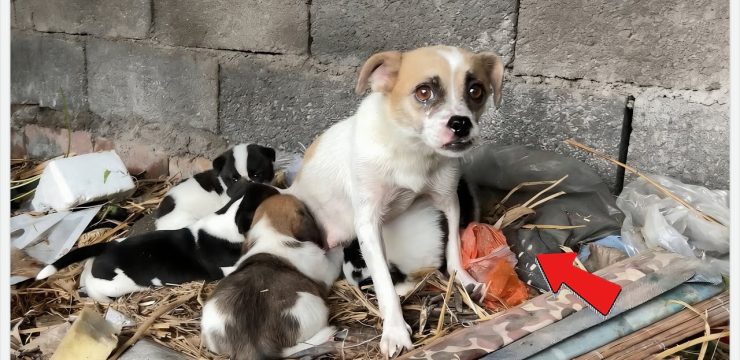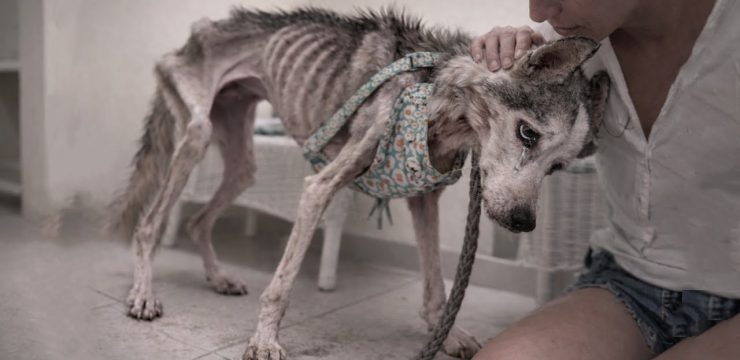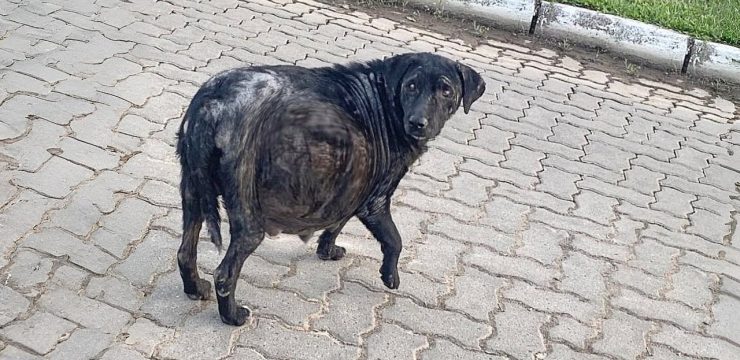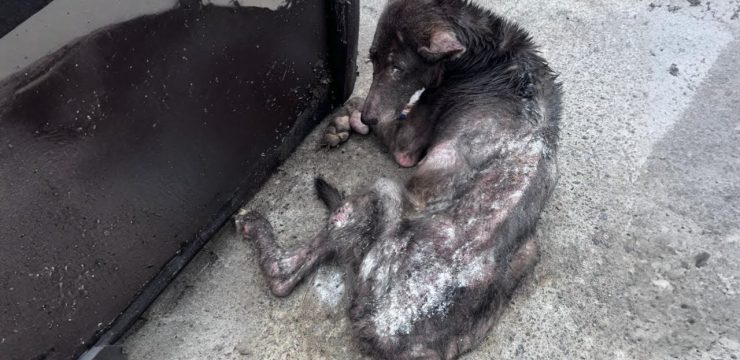Xueli Abbing’s journey is nothing short of extraordinary. Abandoned as a baby and left at an orphanage, she had no way of knowing that she would one day step into the spotlight as a model gracing the pages of Vogue. Life often takes unexpected turns, and for Xueli, the path to success was filled with challenges, surprises, and remarkable achievements. By the age of 16, she had already made a name for herself in the international modeling industry, proving that beauty is diverse, and perseverance can lead to incredible opportunities.
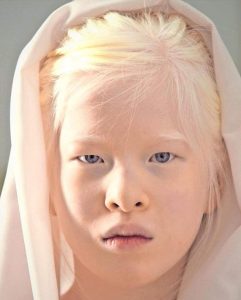
Born in China, she was given the name Xue, meaning “snow,” and Li, meaning “beautiful,” at the orphanage where she was left, possibly due to her appearance or as a consequence of China’s strict one-child policy. However, despite the circumstances that led to her abandonment, the caregivers at the orphanage treated her with love and kindness. Before long, she was adopted by a Dutch family who provided her with a loving home, setting the foundation for a future she could never have imagined.
Growing up with albinism, Xueli faced a world that often misunderstood and stigmatized people with differences. In some cultures, albinism is associated with fear, superstition, or exclusion. In certain African countries, people with albinism face horrifying dangers, as some believe their body parts have magical or medicinal properties. Tragically, this has led to violent crimes against children born with the condition. However, Xueli was fortunate to grow up in an environment where she was encouraged to embrace her uniqueness, and she learned to see her differences as something to be proud of rather than something to hide.
Her journey into modeling began at the age of 11, thanks to her mother’s encouragement. Recognizing her daughter’s striking beauty and strong spirit, Xueli’s mother reached out to a designer friend who was working on a campaign called “Perfect Imperfections.” The campaign sought to redefine beauty by showcasing individuals who didn’t fit traditional standards, and Xueli was a perfect fit. This opportunity marked the beginning of her modeling career, leading to a series of photoshoots that would eventually place her on the radar of major industry players.
One of those photoshoots brought her to the studio of Brock Elbank, a renowned photographer based in London. He took a stunning portrait of Xueli and shared it on Instagram, where it quickly gained attention. Soon after, Zebedee Talent, a modeling agency dedicated to representing individuals with disabilities and differences, reached out to Xueli, inviting her to join their mission of making the fashion industry more inclusive. It was a turning point in her career, opening doors she never thought possible.
Then, in June 2019, a major milestone came her way. One of the photos taken by Brock Elbank was featured in Vogue Italia. The issue’s cover showcased pop star Lana Del Rey, but inside, Xueli’s portrait stood out, making a bold statement about diversity and representation in fashion. At the time, she didn’t fully grasp the significance of being featured in Vogue, but as the excitement around her image grew, she realized the impact of her presence in such a prestigious magazine. It was more than just a personal achievement—it was a step toward broader representation in an industry that often favors a narrow definition of beauty.
Xueli’s modeling career continued to flourish. Beyond Vogue, she participated in numerous high-profile fashion shoots, walked the runway, and even modeled accessories for Kurt Geiger, a well-known fashion brand. Her presence in the industry served as a powerful reminder that beauty comes in many forms and that the world of fashion should celebrate differences rather than conform to outdated standards.
While she appreciates the progress being made in the industry, Xueli remains aware of the stereotypes that still persist. Many models with albinism are often typecast in certain roles, frequently depicted as ethereal beings, angels, or ghosts. While these portrayals may seem artistic, they reinforce harmful beliefs that contribute to the discrimination and even violence faced by people with albinism in some parts of the world. For Xueli, representation isn’t just about being seen—it’s about changing perceptions and fostering a more accepting society.
“There are still models who are like eight foot two and super skinny,” Xueli once said in an interview, highlighting the unrealistic body standards that continue to dominate fashion. “But now, people with disabilities or differences are featured more in the media, and this is great—but it should be normal.” She dreams of a world where diversity in modeling isn’t a novelty but a given, where individuals of all backgrounds, appearances, and abilities are embraced without hesitation.
Xueli’s journey from an abandoned child in an orphanage to an internationally recognized model is a testament to resilience and self-acceptance. She has used her platform not only to showcase her beauty but also to challenge industry norms and advocate for a more inclusive world. Her work with Vogue was just the beginning of a career that continues to inspire countless people around the globe.
Beyond the runway and fashion editorials, Xueli remains an advocate for people with albinism, speaking out against discrimination and raising awareness about the challenges they face. Through interviews, social media, and collaborations with organizations, she hopes to create lasting change, ensuring that future generations grow up in a world that values them for who they are.
Her story serves as a powerful reminder that beauty isn’t confined to a single definition. It is diverse, multifaceted, and deeply personal. Xueli Abbing’s presence in the fashion industry is helping to rewrite outdated narratives, proving that what makes someone different can also be what makes them extraordinary.
If you want to see more of her inspiring work, be sure to visit her Instagram, where she continues to share her journey, celebrate individuality, and break barriers in the world of fashion.

